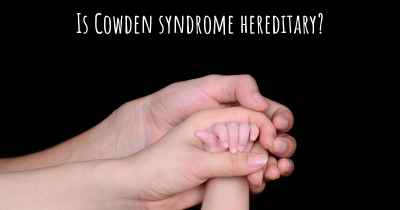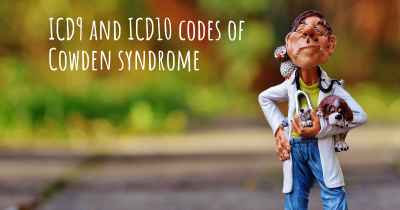How is Cowden syndrome diagnosed?
See how Cowden syndrome is diagnosed. Which specialists are essential to meet, what tests are needed and other useful information for the diagnosis of Cowden syndrome

Cowden syndrome is a rare genetic disorder characterized by the development of multiple noncancerous growths called hamartomas and an increased risk of certain types of cancer. It is caused by mutations in the PTEN gene, which is responsible for regulating cell growth and division. Diagnosing Cowden syndrome can be challenging due to its variable presentation and overlap with other conditions. However, there are several key steps involved in the diagnostic process.
Medical History and Physical Examination
The initial step in diagnosing Cowden syndrome involves taking a detailed medical history and conducting a thorough physical examination. The healthcare provider will inquire about the patient's personal and family medical history, paying close attention to the presence of certain symptoms and conditions associated with Cowden syndrome. These may include:
- Multiple hamartomas: The presence of benign growths in various organs, such as the skin, mucous membranes, gastrointestinal tract, and thyroid gland.
- Macrocephaly: An abnormally large head size.
- Trichilemmomas: Benign tumors that develop in hair follicles.
- Acral keratoses: Thickened, wart-like growths on the palms of the hands and soles of the feet.
- Thyroid abnormalities: Such as goiter or thyroid nodules.
- Breast, endometrial, or thyroid cancer: These are the most common cancers associated with Cowden syndrome.
Genetic Testing
Genetic testing plays a crucial role in confirming a diagnosis of Cowden syndrome. It involves analyzing a blood or saliva sample to identify mutations in the PTEN gene. Genetic testing can be performed using various techniques, such as DNA sequencing or targeted mutation analysis. The results of the genetic test can help determine if a person has a PTEN gene mutation, which is present in the majority of individuals with Cowden syndrome.
Additional Screening and Imaging
Once a PTEN gene mutation is identified, additional screening and imaging tests may be recommended to assess the extent of the condition and detect any associated complications. These tests may include:
- Mammogram and breast MRI: To screen for breast cancer.
- Thyroid ultrasound: To evaluate the thyroid gland for abnormalities.
- Colonoscopy: To examine the colon for polyps or other abnormalities.
- Endometrial biopsy: To detect any abnormal changes in the lining of the uterus.
- Renal ultrasound: To assess the kidneys for any cysts or tumors.
Consultation with Specialists
Given the multisystem nature of Cowden syndrome, individuals suspected of having the condition may be referred to various specialists for further evaluation and management. These specialists may include dermatologists, gastroenterologists, endocrinologists, gynecologists, and oncologists. They can provide expert opinions and guidance in managing the specific manifestations of Cowden syndrome.
Regular Follow-up and Surveillance
Once a diagnosis of Cowden syndrome is confirmed, regular follow-up and surveillance are essential to monitor for the development of new symptoms, growths, or cancers. The frequency and type of surveillance tests may vary depending on the individual's age, sex, and specific risk factors. It is important for individuals with Cowden syndrome to maintain a close relationship with their healthcare team and adhere to the recommended surveillance protocols.
In conclusion, diagnosing Cowden syndrome involves a comprehensive approach that includes a detailed medical history, physical examination, genetic testing, additional screening and imaging, consultation with specialists, and regular follow-up. Early diagnosis is crucial as it allows for appropriate management and surveillance to minimize the risk of complications associated with this genetic disorder.
Posted Mar 4, 2017 by Kenneth 1001
Posted Mar 4, 2017 by Linda 1001
Posted Mar 5, 2017 by derek 300








